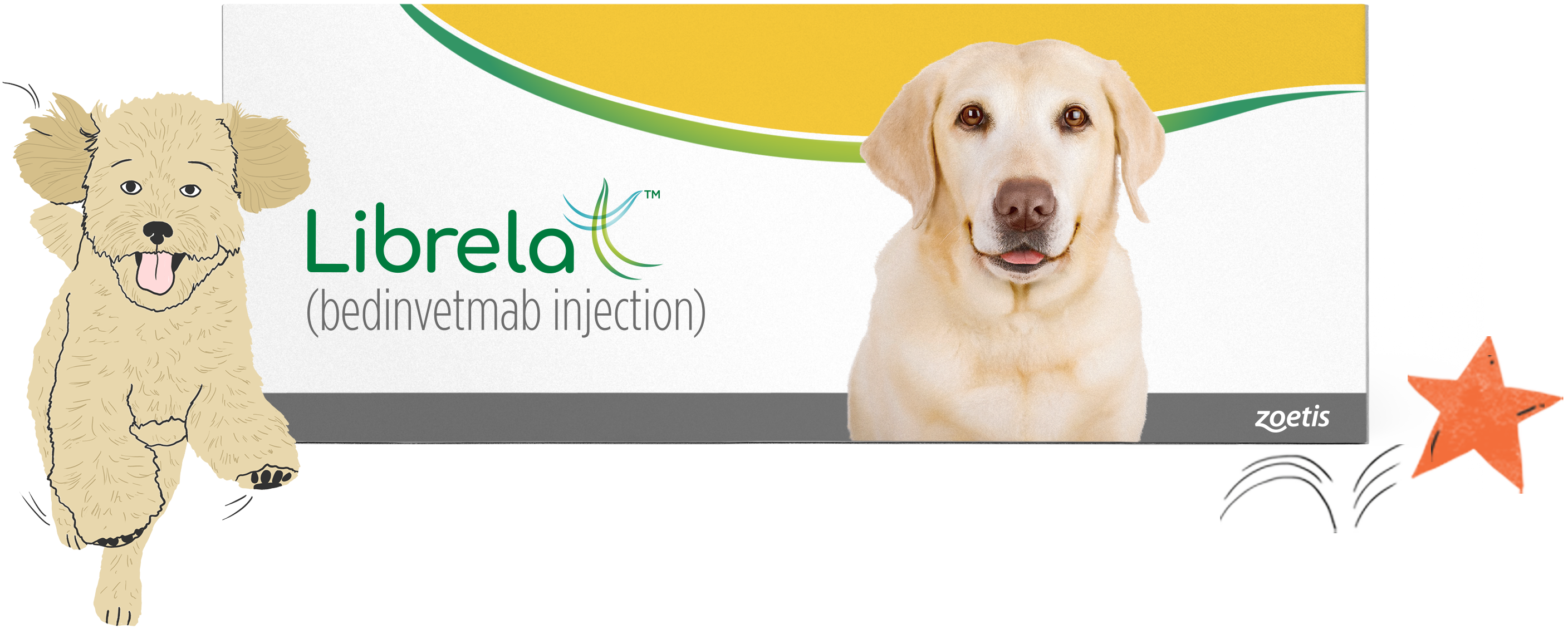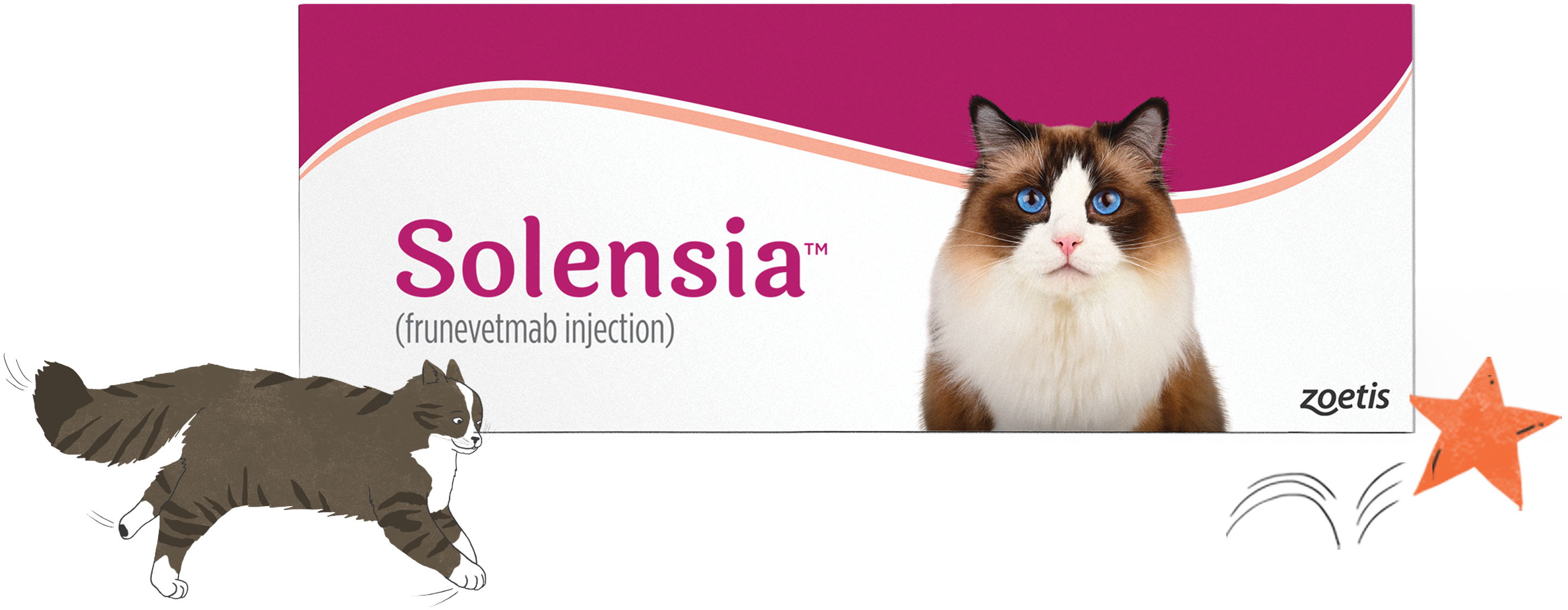How Do You Know If Your Dog or Cat Has Arthritis?
 Our pets can't use words to tell us when they hurt - and arthritis is something that, as a pet parent, may be difficult to see unless you know what to look for. Telltale signs of arthritis in your dog or cat may include:
Our pets can't use words to tell us when they hurt - and arthritis is something that, as a pet parent, may be difficult to see unless you know what to look for. Telltale signs of arthritis in your dog or cat may include:
- The way he or she moves may change - they may be favoring a limb, limping, or have a shift in their gait.
- They may have stiffness when they get up after sleeping or laying down, or stiffness after they've been active.
- Your dog or cat may be sleeping and laying around more than usual.
- You may notice them licking, chewing, or cleaning the fur near the area that causes them pain.
- Your pet may be more irritable or aggressive than normal, or have other changes in their behavior.
As pets age, they can't always tell us when they hurt, but these kinds of changes can be symptoms that they're experiencing pain from issues like arthritis.

Does Your Pet Have Arthritis?
Our veterinary team at Tall Grass Animal Hospital is here to help you keep your pets healthy and happy as they age. Arthritis, especially osteoarthritis (OA), is a common condition affecting middle-aged and older pets, leading to stiffness, swelling, and joint pain.
Did you know:
- About 40% of all dogs and cats show signs of osteoarthritis
- Only 1 in every 3 of these dogs with symptoms are formally diagnosed and treated for osteoarthritis.
- Similarly, less than 1 in every 5 cats showing signs of osteoarthritis are formally diagnosed and treated.
Thankfully, treatments like Librela for dogs and Solensia for cats are available to help provide long-lasting joint pain relief so your furry friends can enjoy their lives to the fullest.
What Are Librela™ (bedinvetmab injection) and Solensia™ (frunevetmab injection)?
Librela and Solensia are monthly arthritis injections for dogs and cats that target joint pain and discomfort caused by pet osteoarthritis. These medications use the latest pharmaceutical technology to block the specific protein responsible for pet joint pain, providing relief without the common side effects seen in traditional pain medications, such as NSAIDs.
With Librela and Solensia, your pet only needs a monthly injection, making it a convenient and effective solution for managing joint pain in pets.

How Librela Helps Dogs
Librela is an osteoarthritis treatment for dogs that blocks a protein called nerve growth factor (NGF), which causes pain from dog osteoarthritis. By stopping the pain at its source, Librela helps improve your dog’s comfort and mobility. It’s also gentle on their liver, kidneys, and stomach

How Solensia Helps Cats
Solensia for cats works similarly to Librela but is specially formulated for feline osteoarthritis. Cats tend to hide their pain, so you may only notice subtle signs like reduced jumping or slower movement as signs of OA. Solensia targets the pain caused by cat osteoarthritis, allowing your feline friend to move more freely and comfortably.
Why Choose Librela or Solensia?
Here’s why Librela (for dogs) or Solensia (for cats) could be a great fit for your pet:
- Convenient: With just one monthly injection, you may be able to avoid the hassle of daily medications.
- Fewer Side Effects: Traditional pain meds may cause issues with your pet's stomach or organs, but Librela and Solensia are more targeted, making them ideal for senior pet joint care.
- More Active Pets: Pets on these treatments often experience improved mobility and return to their playful selves.
- Safe and Effective: These injections provide targeted relief for pet arthritis, with low risk of major side effects
When Will You See Your Pet’s Symptoms Improve?
After starting Librela or Solensia, the time it takes to start seeing results varies from pet to pet. You might see signs of improvement as early as seven days after the first Solensia or Librela injection. Still, most dogs and cats typically need two doses of Librela or Solensia before seeing noticeable signs of improvement. Dogs may become more eager for walks and playtime, while cats may start jumping onto furniture again and showing increased energy.
Help Your Pet Have More Playful Days
Librela and Solensia are changing the way we treat pet osteoarthritis. These pain relief injections for dogs and cats offer a long-lasting solution for pet joint pain, allowing your senior pets to stay active and happy.
At Tall Grass Animal Hospital, we specialize in senior pet care and have veterinary arthritis experts on staff who are dedicated to helping your pet feel their best. If you think your dog or cat could benefit from Librela or Solensia, schedule a wellness exam with us today! Call us at (720) 420-9922 or use the link below to book an appointment online.
Book Your Appointment Now
*Schedule an appointment to talk with a veterinarian to determine if Librela/Solensia is right for your pet. Savings offered through February 5, 2025 or while supplies last. Can be redeemed up to one pet per month for three months. Promoted discount amounts may include rebates offered through Zoetis Petcare Rewards.
Contact us for additional details.
IMPORTANT SAFETY INFORMATION: See full Prescribing Information. For use in dogs only. Women who are pregnant, trying to conceive or breastfeeding should take extreme care to avoid self-injection. Hypersensitivity reactions, including anaphylaxis, could potentially occur with self-injection. LIBRELA should not be used in breeding, pregnant or lactating dogs. LIBRELA should not be administered to dogs with known hypersensitivity to bedinvetmab. The most common adverse events reported in a clinical study were urinary tract infections, bacterial skin infections and dermatitis.
IMPORTANT SAFETY INFORMATION: See full Prescribing Information. For use in cats only. Women who are pregnant, trying to conceive or breastfeeding should take extreme care to avoid self-injection. Allergic reactions, including anaphylaxis, could potentially occur with self-injection. Solensia should not be used in breeding cats or in pregnant or lactating queens. Solensia should not be administered to cats with known allergy to frunevetmab. The most common adverse events reported in a clinical study were vomiting and injection site pain.
We've upgraded our online store!
Ordering your pet's favorite food and medicine is now easier than ever.
Order Food & Meds
Quick & Easy Registration

Please use the phone number and email you currently use for hospital communications to link your account!
Linked Pet Records & Rx

Your pet's prescriptions and records will be waiting for you!
Pawsome
Savings!

AutoShip discounts, promotions on your favorite products and more!

